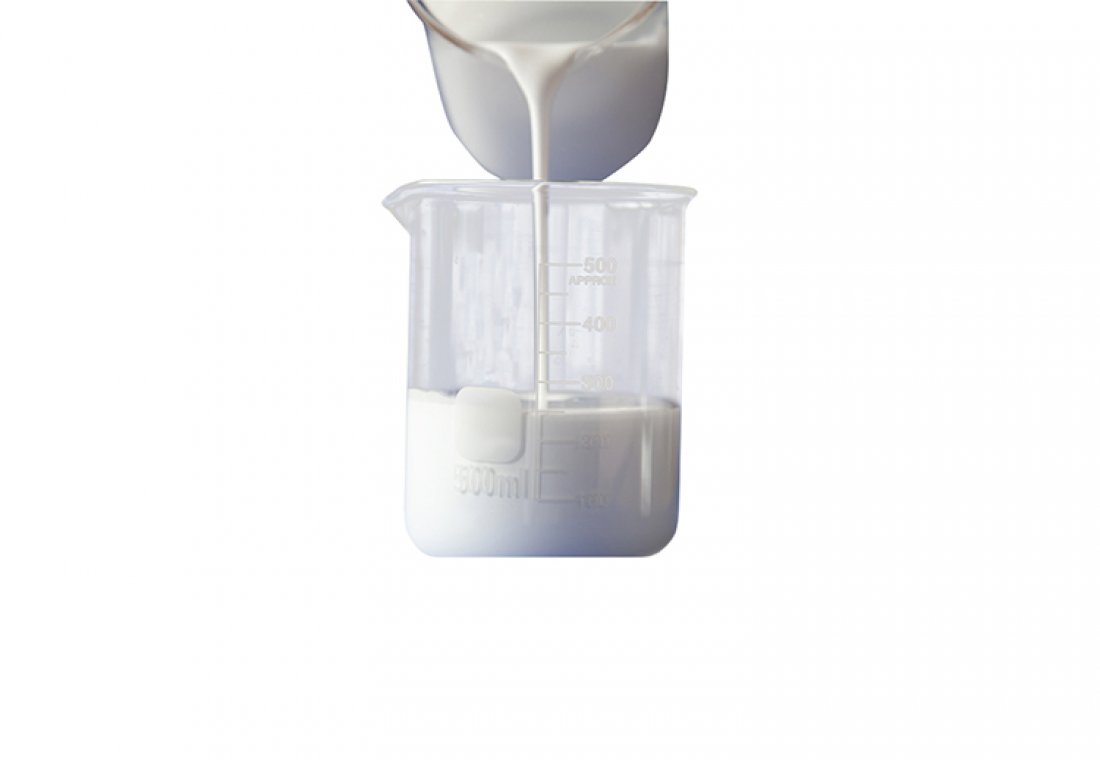DHK™ 8956 (Textile Printing Thickener-for disperse printing) | |
Use | DHK8956 thickener is an anionic acrylic polymer, serving as coloring carrier in fabric printing with dispersive dyes on polyester or polyester blended fabrics. Usually, it can take the place of other kinds of dispersive thickener, like sodium alginate. |
Properties |
1. Viscous liquid, easy to take out or mix with other auxiliaries. 2. Printing paste is easy to make, it can be ready in a while after high-speed stirring. 3. Post-thickening function allows extra dosage even in case the printing paste is not viscous enough. Add some thickener when stirring to adjust the consistency of printing paste. 4. The performance of prepared printing paste is very stable, there is no problem to use the rest of paste next time. 5. Printing paste complemented by this thickener has good color yield, sharp definition. Even under special situation, the paste won’t spray out. 6. Economical to use. Compared to sodium alginate, acrylic printing thickener is much more cheaper,which largely reduces processing cost. 7. Easy wash-off, hence gain soft hand feeling. |
Technical Data | Appearance :Yellowish To Milky Mucus Viscosity of Original:7000~8000m.Pa.s Solid content : 36% ±2% PH value(25℃):6~7 |
Application
|
1. Measure certain dosage of thickener, add specified dosage of water and stir the mixture with high-speed emulsion centrifuge. Paste will be shaped in a few minutes. 2. Mix dyestuff and water together. Add thickener, while mixture is stirred with high-speed emulsion centrifuge, until it reaches required consistency. 3. Recommended dosage: 3.5-8% subject to the color shade
4. Dispersed dyestuff paste formula for reference Dispersed dyestuff : 1-10% Water : 85-90% DHK8956 : X% Total : 100% Working procedure of printing Printing→Drying→Vaporing→Postprocessing→Finished products |
Package and storage |
50KG or 125 KG nett in plastic drum Store in ventilated and cool places |
Assurance period
|
1 year after delivery |
This information and our technical advice – whether verbal, in writing or by way of trials – are given in good faith but without warranty, and this also applies where proprietary rights of third parties are involved. Our advice does not release you from the obligation to check its validity and to test our products as to their suitability for the intended processes and uses. The application, use and processing of our products and the products manufactured by you on the basis of our technical advice are beyond our control and, therefore, entirely your own responsibility. Our products are sold in accordance with our General Conditions of Sales and Delivery.




